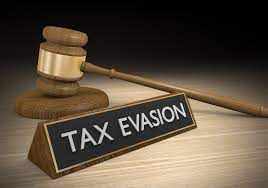
ABSTRACT
In the year 2020, there was a 51% drop in the volume of tax fraud cases in the UK. Tax evasion by high-income people is notoriously difficult to measure due to the many ways in which they can evade tax payment, either from unreported offshore accounts to partnerships and corporations and their many businesses running on beneficial ownerships. These high-income people, therefore, accumulate a lot of wealth from sources that cannot be explained.
The UK government has continued to introduce provisions to tackle tax avoidance and tax evasion.
INTRODUCTION
A person may accumulate unexplained wealth (UW) through a number of unlawful means, such as dealing or trafficking in illicit drugs or substances, corruption, money laundering, theft or fraud, blackmail or extortion, bribery, collusion or kickbacks and tax evasion (TE)
When a person intentionally does not pay their tax or is dishonest about the amount to be paid as tax, they can be said to be guilty of TE. Anyone who does not declare exactly how much taxable income or gains they receive can be accused of TE. In the event that a person accumulates the money gotten from TE as his personal assets, the wealth acquired may amount to UW.
TE IN THE UK
Tax-based fraud or evasion in the UK is generally investigated by Her Majesty’s Customs and Revenue ‘HMRC’ or by the National Crime Agency ‘NCA’. The HMRC works with a number of other investigating and criminal enforcement agencies including the Serious Fraud Office ‘SFO’ to bring tax evaders to book. In cases of offshore TE, the HMRC works with international law enforcement agencies to discover if British citizens are illegally moving money offshore in an attempt to avoid UK tax laws.
TE may occur in a number of ways including;
- Non-reporting of taxable trading income
- Missing trader fraud/carousel fraud
- Tax-allowable expenditure claim
- False invoices / personal expenditure claims
- Imported goods
- Cash or cryptocurrency transactions
- False identity
- Tax avoidance schemes(which are usually more structured).
UW ORDERS & TE
Where a person’s income is not commensurate to his acquired wealth, the HMRC or other enforcement agencies may apply to the High Court for a UW order, requiring the person to explain how the wealth was acquired within the period set by the court. The HMCR will however need to show the Judge that there is reasonable cause to believe that the person holds property worth more than £50,000, and also show that there are reasonable suspicious grounds linking the person with TE amongst other crimes.
Where the person is unable or refuses to explain the source of his wealth, the property is presumed to be recoverable property through the civil recovery regime under the Proceeds of Crime Act in the UK.
PUNISHMENT
The punishment and the average TE sentence vary. TE can result in heavy fines, and the maximum penalty for TE in the UK may well be jail time.
